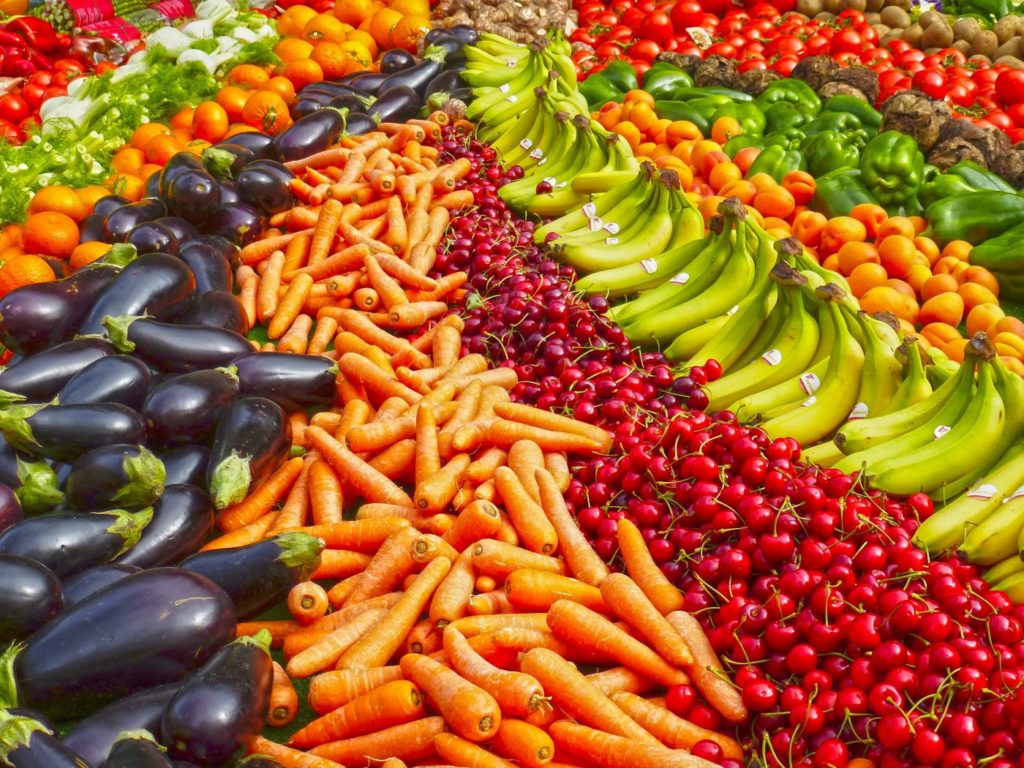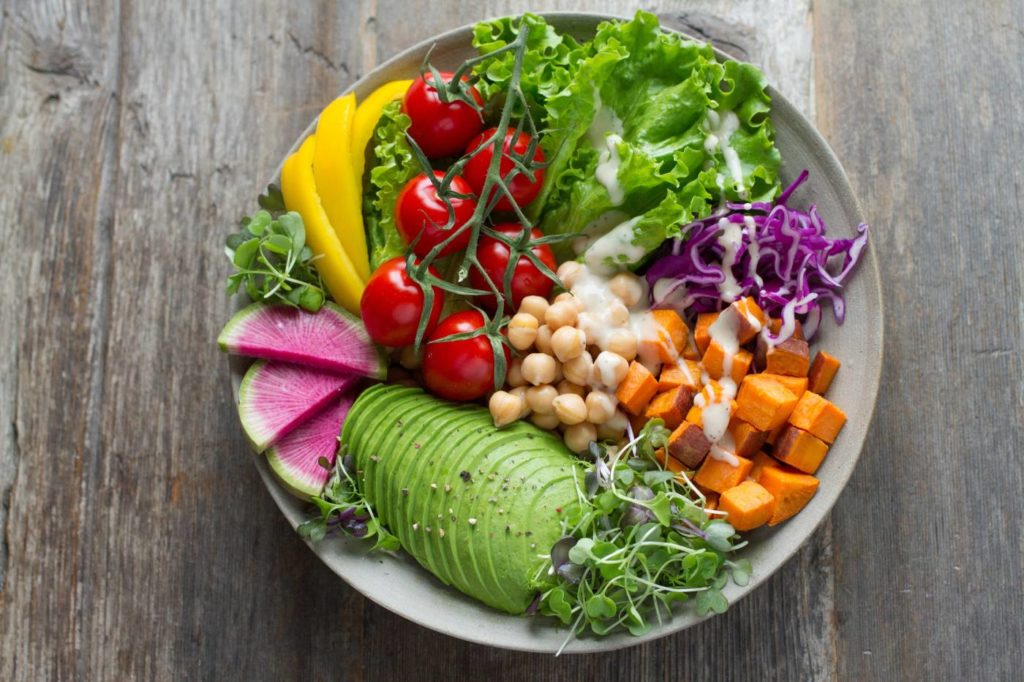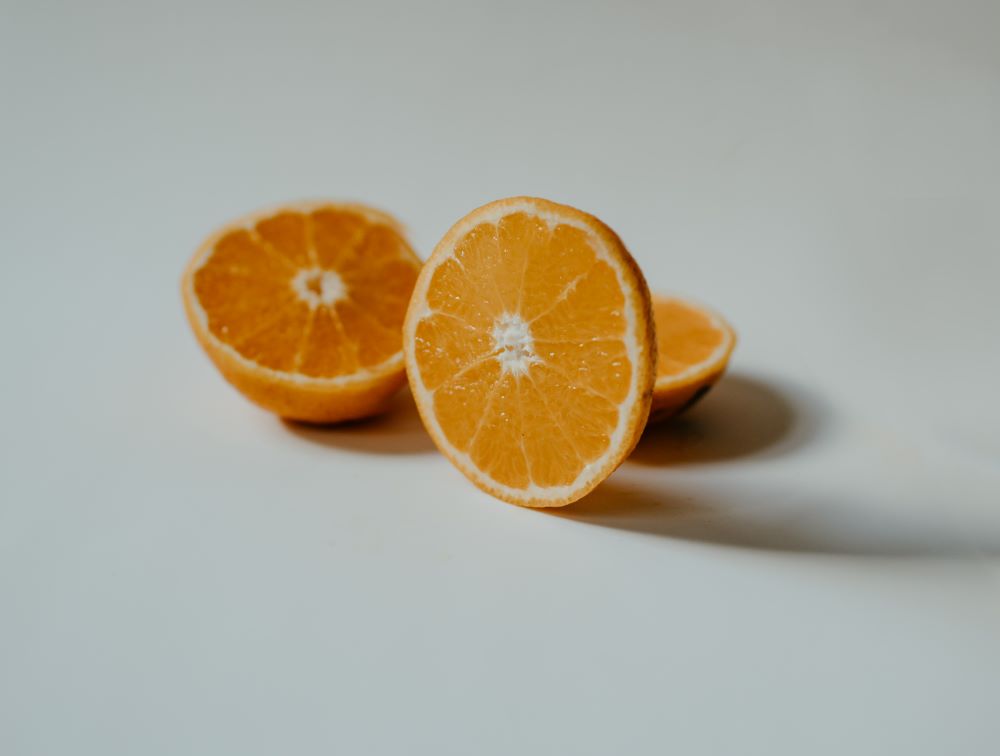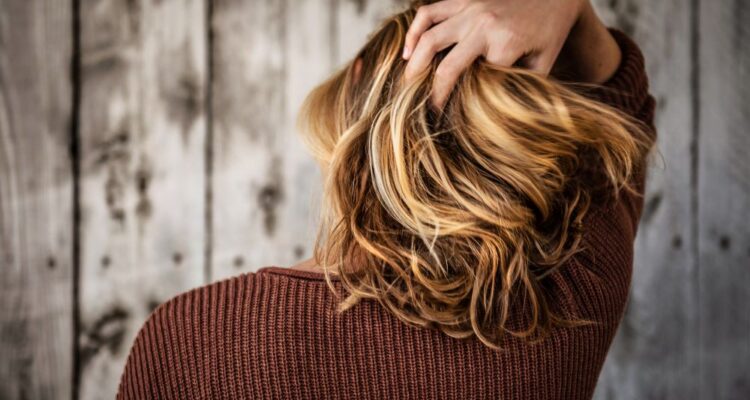If you wish to enhance your hair’s growth, you have to keep it healthy. Yes, you can drink lots of water, wash your hair with high-quality shampoos and conditioners, avoid styling with heat, etc., but at a certain point, it comes down to your diet. This is because certain vitamins and nutrients are essential for keeping your hair healthy and growing, and the only way you obtain them is by consuming them.
Seven natural vitamins that are good for your hair’s growth and health are:
- Vitamin A
- Vitamin B2
- Vitamin B7
- Vitamin B9
- Vitamin C
- Vitamin D
- Vitamin E
If you are concerned about your hair’s health, then you do not have to buy a whole bunch of supplements—although there are some excellent supplements out there. More often, keeping your hair healthy can be as simple as adding a few vitamin and nutrient-packed foods into your daily diet.
Signs That Your Hair Is Lacking In Vitamins And Nutrients
There are certain signs or symptoms that your hair can exhibit that serve as indications of poor hair health and nutrition:
NOTE: We’re not giving medical advice and some of the following symptoms may indicate underlying conditions. If you’re concerned for your health or have any new symptoms, you should talk to your doctor.
The Rate At Which Your Hair Sheds Increases
Not all hair shedding is a sign of a vitamin deficiency. It is actually part of your regular hair cycle, and it helps to ensure that your hair is as healthy as possible. On average, you will shed about fifty to one hundred strands of hair every day!
You go through stages where you shed more hair than at other times. And if you have long hair, you will probably shed at a higher rate than people who have short hair. This is also normal.
You do not have to count the individual strands to see if you are losing more than the fifty to one hundred average. You have lived with your hair your entire life, and it has been losing strands every day, so you will most likely know if you are shedding more than usual.
Your Hair Becomes Brittle
A sign of brittle hair is “shedding” strands that are shorter than your hair length. In this case, you are not shedding these hairs. Instead, they are breaking off along the shaft.
With brittle hair, this breakage can happen as you brush your hair, tuck it behind your ears, run your hands through it, wash it, style it, etc.
Brittle hair is also more prone to getting split ends, and not just at the actual ends of your hair strands. Hooks can appear all the way along the hair shaft, leaving your hair looking like a frizzy mess.
If it gets to be bad enough, brittle hair can actually crackle when you touch it. So, if your hair is making sounds, it is time to investigate a possible vitamin deficiency.
Your Hair Becomes Dry
Some people naturally have drier hair than others, but if it becomes problematic, you will notice the difference.
Dry hair is caused by a deficiency in the oil secretions from your head. Your hair is actually comprised of dead keratinized cells, and so it cannot produce its own moisture.
If there is something interfering with the production of oils in the scalp by the hair roots, then this can result in the hair strands being dry.
Hormonal changes, seasonal changes, etc., can also make your hair drier, but this does not mean that increasing your vitamin intake will not help the problem.
Your Scalp Becomes Dry
Similar to your hair, your scalp can become dry if there is something limiting the production of oil from the glands in your scalp.
If other parts of your body get dry, then you moisturize them. In fact, you probably moisturize them as a part of your daily post-shower routine.
However, you cannot just rub a dollop of moisturizer into your scalp, so you rely on your body to produce natural moisture, with a bit of help from a good conditioner.
You will know if you have dry scalp because it will probably be itchy as the skin cracks and flakes, and scratching will release these flakes of dry skin, sending them falling onto your shoulders and back.
Your Hair Starts To Look Dull
Once again, a lack of oils is responsible for this sign of poor hair health. As you are aware, oil makes surfaces shiny. So, when there is a lack of oil being released over the strands of your hairs, then they start to look lackluster. Your hair can look duller when it is dirty and also for a number of other non-vitamin-related reasons. Still, if you start to notice that your hair is dull all the time, then it might be wise to investigate adding a few sources of vitamins into your diet.
Vitamins Required For Healthy And Growing Hair
There are seven main vitamins required for healthy and growing hair:
1. Vitamin A

Vitamin A can be ingested as retinol or as pre-vitamin A carotenoids. Neither retinol nor carotenoids are in their active and usable forms, and they need to be metabolized within cells into retinal and retinoic acid.
Vitamin A is involved in cell growth and differentiation, including hair cells. Additionally, vitamin A is involved in sebum secretion at the hair follicle. Sebum is an oily substance that hydrates hair and prevents breakage. The daily recommended vitamin A intake for men is 700 micrograms and for women is 600 micrograms per day, and a vitamin A deficiency is classified as a plasma retinol concentration of less than 0.7 mol per litre.
You need to be aware that it is possible to over supplement. Too much vitamin A will actually cause hair loss.Great Food Sources Of Vitamin A
Retinol is found and consumed naturally in animal products like dairy, fish, and meat. Liver is especially high in vitamin A. Pre-vitamin A carotenoids are from plant products. Sweet potatoes, spinach, and carrots are high in vitamin A.
Related reading: Best Multivitamins UK
2. Vitamin B2
Vitamin B2 is also called riboflavin. It is a vital component of two coenzymes: flavin mononucleotide and flavin adenine dinucleotide. These coenzymes are involved in proper cellular growth, function, and development, including that of hair cells.
One of the most common symptoms of a vitamin B2 deficiency is hair loss, but the deficiency is quite rare.
The daily recommended vitamin B2 intake for adults is 1.1 to 1.3 milligrams per day for women and men, respectively.
Great Food Sources Of Vitamin B2
Vitamin B2 can be consumed in animal products like cheese, milk, yogurt, eggs and meat. It can also be obtained from fortified breakfast cereals and breads.
Plants that are good sources of vitamin B2 include spinach, tomatoes, and apples.
Related reading: Best Collagen Supplement UK
3. Vitamin B7

Vitamin B7 is also called biotin, and it is unique in that it is the only B vitamin that your body can produce itself.
While a vitamin B7 deficiency has been proven to result in hair loss, the evidence on whether increasing vitamin B7 intake can improve hair growth is inconclusive.
Despite the lack of evidence, vitamin B7 is still considered to be one of the main vitamins involved in maintaining healthy hair and almost all hair growth supplements.
There is not a daily recommended intake for vitamin B7 as it is anticipated the sufficient amount should be gained through diet but taking 0.9mg or less a day in supplements is acceptable.
Great Food Sources Of Vitamin B7
Vitamin B7 is released into the body from proteins that are ingested. So, foods like meat, liver, kidneys, egg yolk are excellent sources of vitamin B7.
You can also get biotin from non-animal products like nuts, broccoli, sweet potatoes, and avocados.
Related reading: Best Multivitamins for Women
4. Vitamin B9
Vitamin B9 is also known as folate. As with the other B vitamins, it is involved in healthy cell growth, including that of hair cells. There is currently insufficient evidence to say for certain that there a direct link between vitamin B9 and hair growth.
However, pregnant women often have very healthy-looking hair, and then when they give birth, they go through a period of intense shedding. This is possibly because, during pregnancy, these women are taking folic acid supplements to ensure healthy fetal growth.
Even though official research is inconclusive, there is enough testimonial evidence that vitamin B9 is often included in hair growth supplements.
The daily recommended folate intake for adults is 0.2 milligrams per day.
Great Food Sources Of Vitamin B9
Liver is an excellent source of vitamin B9, but not other meats. Egg yolks are another good animal product containing vitamin B9.
Otherwise, vitamin B9 is found more in plants like lentils, beans, and asparagus.
Related reading: Best Multivitamins for Men
5. Vitamin C

Vitamin C is also called ascorbic acid. As with some of the B vitamins, the evidence connecting vitamin C and hair growth is limited, but it is widely accepted as a good hair growth supplement.
One of the reasons for this is that iron deficiencies can cause hair loss, and vitamin C is vital to the process of iron absorption from the gastrointestinal tract.
The daily recommended vitamin C intake for adults is 40 milligrams per day.
Great Food Sources Of Vitamin C
Vitamin C can be found in plants, particularly bell peppers, leafy greens, and any kind of citrus fruit.
6. Vitamin D
Vitamin D can also be called calciferol. Exposure to sunlight provides your body with vitamin D (dermal synthesis of vitamin D), but sometimes not enough, so dietary supplementation can be required.
Vitamin D deficiencies are related to hair loss because vitamin D binds to specialised receptors on keratinocytes, influencing their growth and differentiation. Keratinocytes produce keratin, which is the protein that forms the main structural component of hair.
The daily recommended vitamin D intake varies according to the time of year but adults need 10 micrograms of vitamin D per day.
Great Food Sources Of Vitamin D
If you want to increase your vitamin D intake through diet, then you can add animal products like fish, cod liver oil, and egg yolks. Or you could try mushrooms or fortified milk.
Related reading: Best Vitamin D Supplements
7. Vitamin E
Hair loss is associated with an imbalance in the body’s levels of antioxidants to oxidants. Vitamin E is a well-known and relatively potent antioxidant that helps to prevent oxidative stress and damage by free radicals.
The daily recommended vitamin E intake for men is 4mg per day and for women is 3mg per day.
Great Food Sources Of Vitamin E
Oils, including wheat germ oil, sunflower oil, and soybean oil, are excellent sources of vitamin E.
Nuts, legumes, pumpkins, seeds, spinach, bell pepper, asparagus, and avocado are all really great foods for you to incorporate into your diet to try and maximize your hair health and growth.
Other Essential Nutrients And Minerals For Healthy Hair
Vitamins are not the only nutrients that you need in your diet to ensure that your hair is healthy enough to grow. There are substances like iron, protein, and zinc.
Iron
If you have an iron deficiency, you are not alone. Iron deficiency is the most common nutritional deficiency worldwide.
The role that iron plays in a hair’s lifecycle is not fully understood, but it likely has to do with the regulation of certain genes in the bulge of the hair follicle. These genes are either up-regulated or down-regulated by iron, and a lack of this nutrient can impede proper hair cycle progression.
If you are looking to supplement your iron with your diet, then you might want to increase your intake of foods like red meat, beans, peas, spinach and other leafy greens. You can also try fortified breads and breakfast cereals that contain iron.
Protein
Your hair is made up predominantly of proteins, which are, in turn, composed of amino acids. There are nine different amino acids that humans can only obtain from their diet, so adequate protein intake is vital to the health of your hair. This includes repairing damaged hair and forming new hair growth.
Many foods are excellent sources of protein, including meat, fish, dairy, eggs, nuts, tofu and soy. Because each food provides a different set of amino acids (the building blocks that make up proteins) it’s best to get your protein from a variety of different sources.
Related reading: Best Vegan Protein Powders
Zinc
Zinc is what is known as a trace essential mineral. It is necessary for the function of your body, although it is only required in small quantities.
Zinc is a cofactor. This means that its presence is essential for the correct functioning of certain enzymes. This includes enzymes in the hair follicle that are involved in regular functioning. Additionally, zinc inhibits hair follicle regression and accelerates the repair of hair follicles.
Your body cannot produce zinc, so you have to receive it from your diet. Good dietary sources include shellfish, legumes, nuts, and seeds.
Related reading: Best Zinc Supplement UK
Conclusion
If you’re struggling with hair health and growth you can supplement your diet with foods that are high in vitamins A, B2, B7, B9, C, D, and E. These vitamins are involved in healthy hair cell differentiation, function, growth, and development, as well as proper sebum production.
For some of the vitamins, the link between increased uptake and healthy and growing hair is limited, yet deficiencies in these vitamins are definitely linked to hair loss and dryness.
Related reading
You may also be interested in reading Which Supplements Should I Take?, Best Organic Moisturisers UK and Which Natural Skincare Products Actually Work?
If you’re looking for supplements, vitamins, minerals or just some helpful information, we have some other lists that you may find useful.
- All vitamin and mineral lists
- Best Collagen Supplements UK
- Turmeric Supplements
- Best Ashwagandha
- Best Multivitamins
- Nootropic Supplements
- Best Mushroom Supplements
- Greens Blend Supplements UK
This site is a participant in affiliate advertising programs designed to provide a means for sites to earn advertising fees by advertising and linking to products and services. We participate in programs from Amazon, eBay, CJ, Awin, Viglink and other sites. We are compensated for referring traffic and business to companies linked to on this site.

